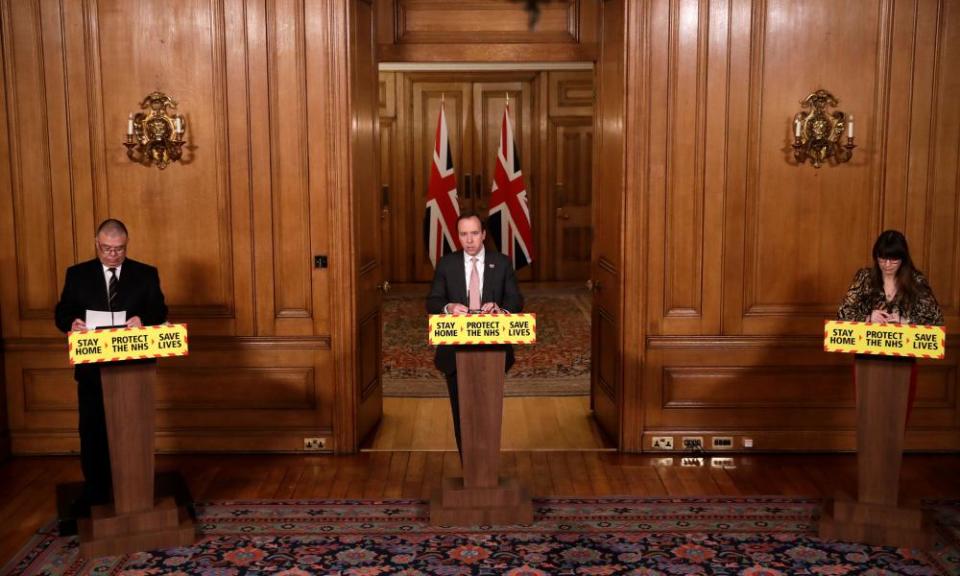Widow sues NHS over deaf husband's 'diabolical' care
A woman is taking legal action against an NHS trust over the “diabolical” and discriminatory treatment of her profoundly deaf husband, who died of cancer in May last year.
Susan Kelly, who is also deaf, is angry that her husband, Ronnie, was at no point during two hospital admissions and an outpatient appointment provided with a British Sign Language (BSL) interpreter. Instead, her hearing daughter, Annie Hadfield, was asked to translate his terminal diagnosis, when he was told to “get his affairs in order” and given between two weeks and two months to live, while his wife was left outside the room. He died just over two weeks later at home.
Medical staff at Sheffield Teaching Hospitals NHS trust also placed a “do not resuscitate” (DNR) order on Kelly, who had Alzheimer’s disease, during his first hospital admission in late April without either his consent or consulting his wife or daughter. His family found out only after their barrister obtained his hospital notes.
In her first media interview, Susan Kelly told the Observer through an interpreter: “I didn’t know what DNR meant. I had no idea. I was really shocked. They’d never asked me anything about it. That wasn’t right, it was wrong. Ronnie wouldn’t have known what it meant.”
Hadfield added: “I thought it was actually quite diabolical.”
The trust is undertaking a review to understand what happened. David Hughes, medical director, said: “We do acknowledge that we have more to do to support patients and relatives who have hearing impairments and it is an area of work we are actively looking at to make improvements.”
The case, brought by Derbyshire Law Centre, argues that the trust breached the Equality Act 2010, the Human Rights Act 1998 and the NHS accessible information standard by not making reasonable adjustments for Ronnie’s disability and by imposing a DNR without discussing it with the patient and his family first.
Kelly and her daughter hope the case will raise awareness of the struggles that deaf people face. There are more than 80,000 people who use BSL as a first language in the UK and they often encounter barriers to accessing information and services.
The family’s story is far from uncommon, and it’s not the first time a hearing relative has had to translate sensitive and distressing information. Kelly herself was admitted to hospital two years ago after a heart attack and fitted with a stent without knowing what was going on because no interpreter was present.
Kate Bushen, service supervisor for the deaf advice team at Citizens Advice Sheffield, who is supporting the family, said: “We hear these horrific stories all the time. We’ve tried to work with the trust to put things in place but nothing’s changed.”
She added: “It is absolutely wrong that a family member should be used without choice and without knowing why.” Covid and the introduction of face masks and an increased reliance on phones and the internet has exacerbated the situation, she added.
Catherine Casserley, a barrister specialising in discrimination and equality, among other areas, who is involved in the Kelly case, agreed: “Access to information for disabled people across the board is, in my view, pretty poor and if you are deaf it’s incredibly poor … If you’re a BSL user, then getting access to timely, accurate information is incredibly difficult, particularly with Covid when things have been changing rapidly.”

The Observer has been made aware of other cases where deaf people have faced barriers to accessing services, with sometimes drastic consequences. For example, one pregnant women needed a BSL interpreter at her labour but the hospital refused to arrange one, leading her to become stressed and depressed about not having any communication support and a deaf man was given medication by his doctor but didn’t know what it was because no effort was made to explain it to him. He sought help from the deaf advice team, who looked up the medication and found out it was for a chronic condition before referring him back to the GP. Several weeks later, he texted the team from hospital saying his condition had worsened and that he felt so alone because he had no way of communicating.
Chris Fry, a specialist equality lawyer at Fry Law, is leading legal challenges against the government – on behalf of campaigner Katherine Rowley, whose first language is BSL – over its refusal to provide a BSL interpreter in daily Covid briefings in England.
He said: “We’re 26 years since the Disability Discrimination Act and 11 years since the Equality Act. The whole purpose was to embed consideration of reasonable adjustments in the context of decision-making within government and public services, and it’s just not happened. When we’ve been tested, we’ve been found well lacking and that’s super-disappointing.”

 Yahoo Finance
Yahoo Finance 